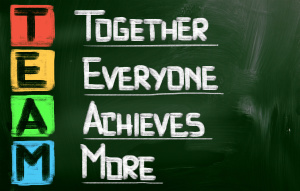11 SKILLS YOU NEED WHEN FORMING A SURVIVAL TEAM
While deep knowledge of survival tactics is advantageous, there’s no denying the extra hurdles one faces when trying to survive solo. Successful solitary survival depends not only on possessing crucial survival skills needed to handle tasks alone but also on the effectiveness of executing these skills.
This scenario imposes a multi-dimensional workload on the individual.
Choosing survival as a team dramatically boosts your chances of survival by allowing task distribution and making collective defense possible in face of danger. The power of team collaboration heightens performance, and if any team member falls ill, immediate caregiver assistance is on hand.
There’s no single answer to what the perfect survival team size is, as circumstances could change that. The mix of diverse abilities and harmonized personalities is more important than the number of members. A smaller team can sometimes have the right balance of skills to foster a unified decision-making process and cooperation.
So what competencies should the team encompass?
- Leadership – Every team needs a leader and even a second-in-command. While there are several different leadership models which can be used, servant leadership would be better than a militaristic authoritarian leadership creating a friendlier, cooperative environment.
- Medical – Survival offers many opportunities to become injured, more than to become ill. The team needs someone with the necessary medical training to care for those members of the team.
- Survival skills – While everyone in the team should know basic survival skills, there should be one team member who is a true expert. This will be the person who will direct the efforts of the team in purely survival related tasks, as well as training the other team members.
- Hunter – At least one and preferably two team members should be experienced hunters. I’m not talking about the type of hunter that puts feed corn out there as bait and waits for the deer to arrive, but those that know how to go out and find the animals.
- Gardener – A vegetable garden will probably be a major part of your survival strategy. At least one team member needs to have a truly green thumb and be able to instruct others in how to work in the garden.
- Animal husbandry – If you are going to raise any domesticated animals for food or labor as part of your survival strategy, you need at least one person who knows how to care for those animals.
- Communications – You’ll need to know how to communicate with each other, as well as reach out to the rest of the world to find out what’s going on. Someone with more communications experience than using a cell phone can be very useful. A ham radio operator would be even better.
- Engineer/Repair man – Things break and you’ll need to repair them. You’ll also need to be able to make things that you don’t have. A good jack of all trades, who can repair just about anything will be worth their weight in gold.
- Child care/Teaching – At least some of your team members will have children, who will need to be taken care of and educated.
- Defensive coordinator – Someone needs some military experience, preferably in the infantry or special forces, so that they can be your military commander and coordinate your defensive efforts.
- Wise counselor – While this may not seem to be a survival skill, it is probably the most important skill on this list. As long as people are working or living together, there will be conflict. It is this counselor’s job to keep everyone on an even keel and help them to work through emotional difficulties and conflicts.
Every expert in the team has to take the main responsibility for their specialized area, while receiving support from the others. Tasks like defense and farming tend to involve the efforts of all team members.
Even though team members are capable of performing multiple roles, a high demand on their time may call for assistance. Assistants don’t only provide a helping hand, but also promote skill sharing among the team. This ensures that relevant expertise stays within the team for a longer period.
Another intricate aspect in forming a survival team lies in cultivating harmonious relations and promoting effective cooperation among all members. Internal disputes erode team morale and hence, selecting conflict-free team members marks an intricate part of the team-building process. Here are some tips for this:
- It is always easier to work with people who are forgiving and mellow, rather than those who insist on being right and having things their own way.
- All team members should be “like minded” in the most important areas that affect your groups survival. On areas of disagreement, they should be people who can discuss their differences and agree to disagree if they can’t reach agreement.
- It can help to have people of like faith, as many of the biggest arguments in history have been over differences of faith.
- Everyone needs to have a good work ethic. The fastest route to strife is to have people who aren’t pulling their own weight.
- People are usually either givers or takers. Those who are takers can cause a lot of jealousy and resentment in the team. Avoid them as much as possible.
Despite the best of intentions, human interactions can be unpredictable. It’s essential that each team member is dedicated to the overall success of the group. As a survival team setup replicates a voluntary socialist lifestyle, it’s critical that each person understands the importance of selflessly giving to the overall health of the team.
While the primary aspect of this team is survival, pre-survival collaborative projects and social encounters are highly beneficial. This approach facilitates understanding of individual strengths and nurturing efficient teamwork.

